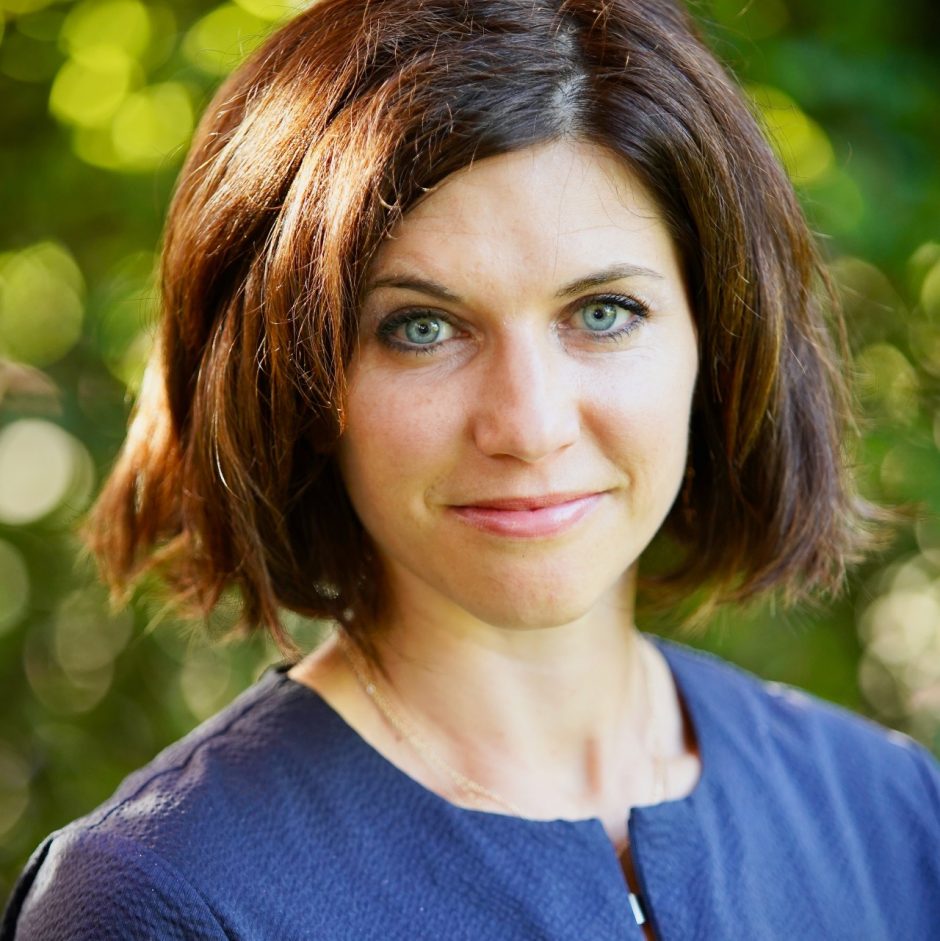
Associate Professor
phone: 604–714–4105
julia.schmidt@ubc.ca
Profile
My work as an occupational therapist started in the acute hospital and community settings after obtaining my BSc in Occupational Therapy at the University of Alberta. I then moved to Sydney, Australia to enjoy an adventure and work at a leading traumatic brain injury rehabilitation centre.
I also worked part-time as a research assistant and lecturer, where I caught the ‘research bug’. This led me to pursue my PhD in cognitive rehabilitation, completed in 2014 from The University of Queensland. During my time in Australia, I found my passion for brain injury rehabilitation, evidence-based practice, and patient and community partnerships.
I returned to Vancouver to be close to family and to undertake a postdoctoral fellowship at UBC investigating neurophysiological changes in youth who had sustained mild traumatic brain injuries (i.e., concussions). I learned advanced non-invasive imaging techniques for understanding brain development, impairment, and recovery.
My current research interests stem from neurobiological to psychosocial in the brain injury population. One of my favourite parts of my position is working alongside people with lived experience and my graduate students to understand the experience of brain injury – and then passing this new knowledge along in my classes. To know more, visit CEDAR Brain Injury Lab.
Outside of work, I enjoy spending time outdoors with my husband and two boys.
Research
My research is patient- and community-partnered, and focuses on changes in self-identity and self-awareness, changes in the brain, and rehabilitation strategies following traumatic brain injury. Specifically, I am interested in determining effective rehabilitation strategies and mechanisms of recovery for people with brain impairment.
Teaching
My teaching philosophy is grounded in the concept that learning is best obtained through enquiry. I believe that to acquire and embed knowledge, one must first be curious. In this way, my teaching style encourages an interactive learning environment where individuals are not only expected to learn from my instruction but from drawing on their own and each other’s experience through discussion. Balancing didactic lectures, peer/group discussion, and other teaching mediums is key in cultivating a classroom with inquisitive individuals with a strong knowledge foundation. My teaching practice fosters mutual respect and approachability to create a dialogue of learning. My goal as a passionate teacher is to cultivate inspiration and critical thinking, and in turn, clinical reasoning.
Specific teaching interests are courses that involve neurological rehabilitation, pathophysiology of neurological impairment and practical occupational therapy skills.
Graduate and Postdoctoral Research Opportunities
I am accepting students interested in pursuing MSc and PhD degrees through the UBC Rehabilitation Sciences Graduate Program. Working with me at the Rehabilitation Research Program at GF Strong Hospital will immerse students in a highly collaborative research environment addressing questions related to mechanisms of brain injury and recovery, self-identity and role changes after brain injury, and the development and testing of individualized interventions after brain injury. Check CEDAR Brain Injury Lab to know more.
Interested graduate students should forward a copy of their resume/CV, transcripts and research interest areas to me. Visit the Rehabilitation Sciences Research Graduate Programs Website for more information.
Affiliations
- Principal Investigator, Rehabilitation Research Program
- Canadian Association of Occupational Therapists, member
- Canadian Traumatic Brain Injury Research Consortium, member
- Australian Health Practitioner Regulation Agency, Registered Occupational Therapist
Select Publications
*link to articles provided when possible*
Schmidt, J., Brown, K.L., Feldman, S.J., Babul, S., Zwicker, J.G., & Boyd, L.A. (2021). Evidence of altered interhemispheric communication in paediatric concussion. Brain Injury. DOI: 10.1080/02699052.2021.1929485
Mclean, A., Moen, E., Schmidt, J.*, Zwicker, J.G.* (accepted 2021). Experiences of children and youth with concussion. American Journal of Occupational Therapy, 76(4). *Co-senior authors.
Boisgontier, M.P., Cheval, B., & Schmidt, J. (2020). Daily life physical activity and concussion symptoms in adolescents. Canadian Journal of Occupational Therapy, 87(5), 365-371.
Fleming, J., Goh, A.T.H., Lannin, N.A., Ownsworth, T., & Schmidt, J. (2020). An exploratory study of verbal feedback on occupational performance for improving self-awareness in people with traumatic brain injury. Australian Occupational Therapy Journal, 67(2), 142-152.
Schmidt, J., Rubino, C., Boyd, L.A., & Virji-Babul, N. (2018) The role of physical activity in recovery from concussion in youth: A neuroscience perspective. Journal of Neurological Physiotherapy, 42(3), 155-162.
Schmidt, J., Hayward, K.S., Brown, K.E., Zwicker, J.G., Ponsford, J., van Donkelaar, P., Babul, S., Boyd, L.A. (2018). Imaging in pediatric concussion: A systematic review. Pediatrics, 141(5). DOI: 10.1542/peds.2017-3406
Cooksley, R., Maguire, E., Lannin, N.A., Unsworth, C., Farquhar, M., Galea, C., Mitra, B., & Schmidt, J. (2018). Persistent symptoms and activity changes three months after mild traumatic brain injury. Australian Occupational Therapy Journal, 65(3), 168-175. DOI: 10.1111/1440-1630.12457.
Hayward, K.S., Schmidt, J., Peters, S., Lohse, K.R., Bernhardt, J., Lannin, N.A., & Boyd, L.A. (2016) Are we armed with the right data? Pooled individual data review of biomarkers in people with severe upper limb impairment after stroke. NeuroImage: Clinical, 13, 310-319. Journal impact factor 4.57.
Schmidt, J., Fleming, J., Ownsworth, T., & Lannin, N.A. (2015). An occupation-based video feedback intervention for improving self-awareness: Implications for practice. Canadian Journal of Occupational Therapy, 82(1), 54-63.
Schmidt, J., Fleming, J., Ownsworth, T., & Lannin, N.A. (2013). Video-feedback on functional task performance improves self-awareness after traumatic brain injury: A randomised controlled trial. Neurorehabilitation and Neural Repair, 27(4), 316-324.
Schmidt, J., Lannin, N.A., Fleming, J., & Ownsworth, T. (2011). Schmidt, J., Lannin, N.A., Fleming, J., & Ownsworth, T. (2011). Feedback interventions for impaired self-awareness following brain injury: A systematic review. Journal of Rehabilitation Medicine, 43(8), 673-680. Journal of Rehabilitation Medicine, 43(8), 673-680.